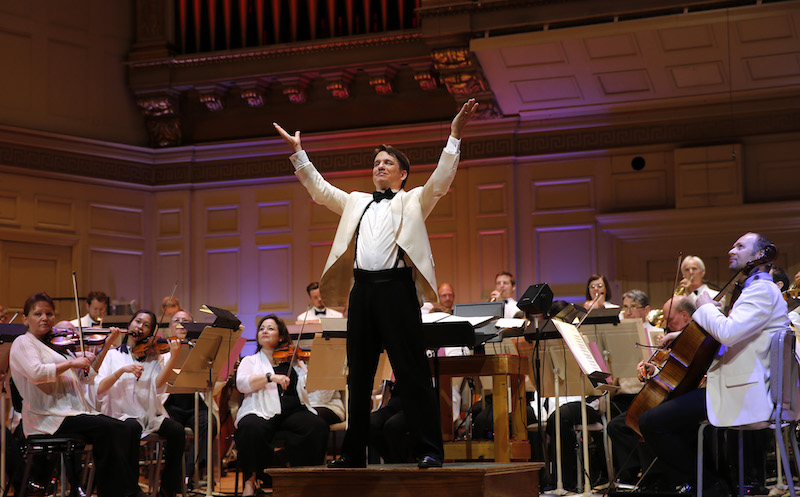Lights, Camera…Music! Interview with Keith Lockhart
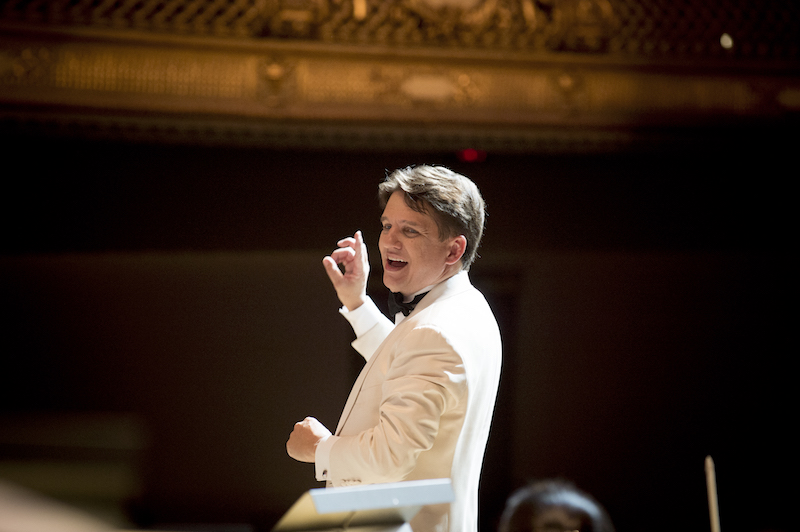
A conversation with Boston Pops Orchestra’s Music Director about his new CD dedicated to the music of legendary film composer John Williams
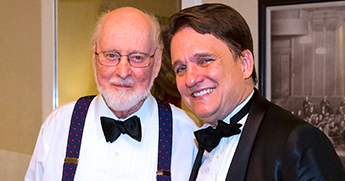 In the year of his 85th birthday, legendary film composer John Williams received a special gift from an esteemed colleague and friend: Keith Lockhart, principal conductor and music director of the Boston Pops Orchestra, released a new album titled Lights, Camera, Music! Six Decades of John Williams. The CD (released on the orchestra’s own independent label, BSO Classics, and now available internationally) is a true wondrous musical journey focusing mostly on the composer’s lesser-known pieces throughout his now 50+ years career in film music. The result is a spectacular and dazzling collection that shows Williams’ wide repertoire and his versatility as a film composer, putting the spotlight for a moment on some less famous scores, but no less interesting musically than his most celebrated works. In addition to the CD, Lockhart devoted a large part of this year's Pops season to the music of John Williams. He also recently conducted the BBC Concert Orchestra in a sold-out night dedicated to Williams' music as part of the legendary BBC Proms series.
In the year of his 85th birthday, legendary film composer John Williams received a special gift from an esteemed colleague and friend: Keith Lockhart, principal conductor and music director of the Boston Pops Orchestra, released a new album titled Lights, Camera, Music! Six Decades of John Williams. The CD (released on the orchestra’s own independent label, BSO Classics, and now available internationally) is a true wondrous musical journey focusing mostly on the composer’s lesser-known pieces throughout his now 50+ years career in film music. The result is a spectacular and dazzling collection that shows Williams’ wide repertoire and his versatility as a film composer, putting the spotlight for a moment on some less famous scores, but no less interesting musically than his most celebrated works. In addition to the CD, Lockhart devoted a large part of this year's Pops season to the music of John Williams. He also recently conducted the BBC Concert Orchestra in a sold-out night dedicated to Williams' music as part of the legendary BBC Proms series.
We met with Maestro Keith Lockhart to talk about the CD, his reflections on Williams’ music and his role as the conductor of one of America’s greatest musical institutions.
ColonneSonore: Maestro Lockhart, let's start our conversation with your new album, Lights, Camera, Music! Six Decades of John Williams. How the idea for such an album came up to you? What was your main focus in creating this new recording project?
Keith Lockhart: We were discussing ways to honor John in his 85th birthday year, and we realized that this would be the first John Williams album done by the Pops without John himself conducting. So much of John's music has been recorded, some of it many times. In Lights, Camera, Music, we wanted to focus on music that had not been recorded, and might not be familiar to our audience. And, as much as possible, we wanted the CD to reflect the incredible diversity of John's output over the last half century.
CS: The album is a great journey through John Williams' film career, spanning six decades of work in the film industry, from his early days to his most recent blockbusters such as The Force Awakens. However, the selections on the CD focus mostly on Williams' lesser-known film scores such as Heidi, Goodbye Mr. Chips, The Towering Inferno, among others. How and why did you choose such pieces?
KL: Some of the choices were made for chronology...we wanted to feature at least a couple of selections from each of the past six decades of his work. We listened to dozens of selections, and settled on which ones we felt told his story best. And then we started trying to find materials for some of the older cues...which was quite challenging for some of them!
CS: Do you have a particular favorite among the pieces on the album?
KL: I particularly like "Reunion and Finale" from Sleepers, and the Overture to The Towering Inferno. But, really, I like everything on the album!
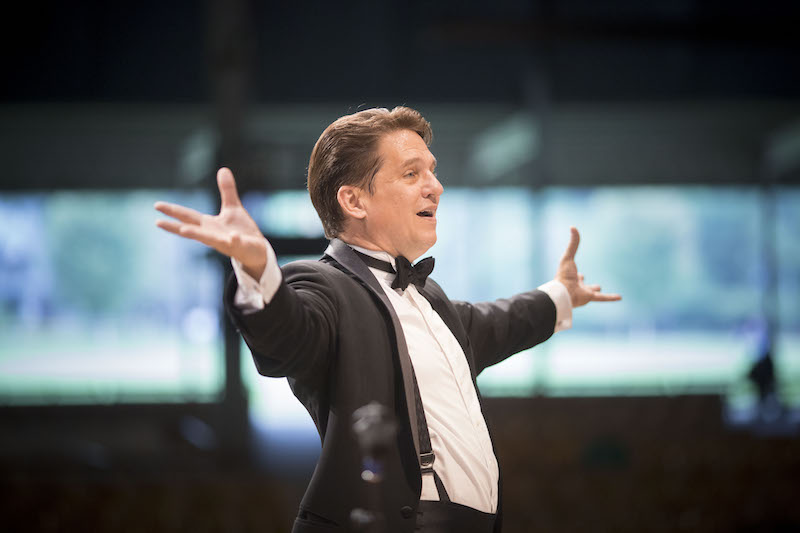
CS: Did you involve John Williams directly for this project? Did he personally give you the manuscripts/sheet music for the pieces that are not officially available through his publisher Hal Leonard?
KL: We involved quite a few people in the hunt for the unpublished movie cues. John had some of the materials in his personal library, many of which had to be recoiled from manuscript scores or restored using parts from the original sessions and John's sketches. John's personal librarian and Mark Graham at Jo Ann Kane Music Service (a big Hollywood music copying house) also helped us find and restore various cues.
CS: Were there any pieces you'd love to perform and/or record for this album but you weren't able to?
KL: We tried to find music from John's scores from the late 1950's, but some of the materials just don't seem to exist anymore, and other selections just didn't seem to excerpt well, or weren't orchestral in nature.
CS: The album is a great showcase of Williams' versatility as a composer and of his almost chameleon-like qualities. It seems he can write truly in any style or form. However, his own singular voice is always loud and clear. What is for you the main reason that he always sounds so recognizable to our ears?
KL: There are "signature" things that John does...every composer with a clear voice has them. However, I would say that the most singular thing about John's music is that he inhabits the soul of the movie he's writing for. I can't think of many composers I would want to compose, for example, both Star Wars and Schindler's List. I don't so much hear John's voice in those two movies as I feel like I hear the voice of the movie being expressed.
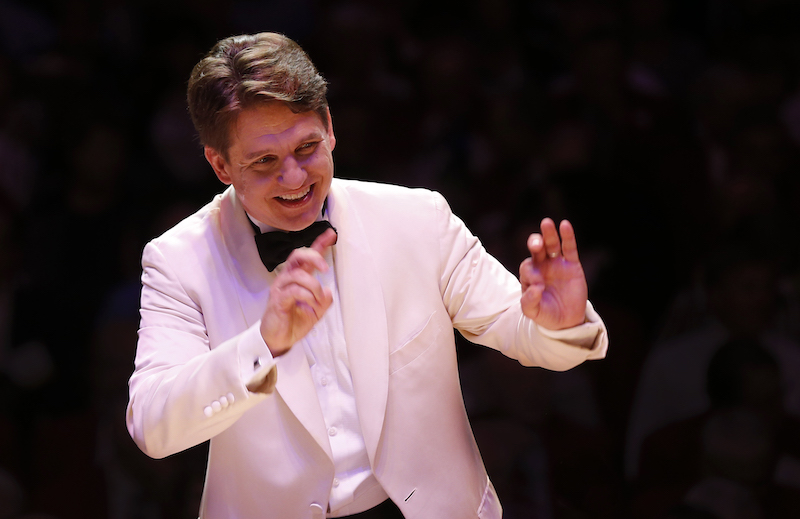
CS: Williams' music seems to combine at least two different “souls”--the European musical tradition combined with a true, sincere American spirit. His music seems to be the perfect meld of these two worlds, like probably only Leonard Bernstein and Aaron Copland did before him. What do you think will be John Williams' place in music history in the future?
KL: Film music is the great new musical genre of the 20th century, and the first new platform for orchestral expression in the past couple hundred years. John has perfected the genre...there may never be another like him. He is the successor and direct descendent of the great composers of Hollywood's Golden Age...Waxman, Steiner, Korngold...but also the continuation of the "American sound"...following on and adding to the legacy of Copland, Gershwin, and Bernstein.
CS: How important is to keep playing and recording John's lesser-known pieces other than his most famous one?
KL: I think it gives a better-rounded picture of John's contributions to the genre, and leads fans who are only familiar with his more famous scores on a journey of discovery. And no matter how great the greatest scores are, it is possible to wear them out...would our appreciation of Beethoven be the same if we just played the Fifth and Ninth symphonies, over and over?
CS: You came at the Pops in 1995 after Williams' 13-years tenure and you've been the Pops' music director ever since. Did John give you any suggestions when you accepted the post? Were you frightened to step into such a big American music icon like the Boston Pops?
KL: I don't know if "frightened" is the right word, but I was certainly aware I was getting into something big. John's advice was to not rush things...not to immediately expend energy on trying to make it "mine." He said to just concentrate on being a good steward of an amazing tradition, and to let change happen slowly and organically. I tried very hard to follow his advice.
CS: And I think you succeeded very well. So, how do you see the Pops going into the 21st century? How much is important to keep their repertoire fresh and include new offerings and formats without passing over the tradition?
KL: Our ongoing challenge, and mission, is to expose the widest possible audience to great orchestral music...both the classics of our genre, and music brought into the orchestral format by the Boston Pops. That's very much the same as the challenge was 50 years ago but, of course, the people are different, and their tastes in music are different. We always have one foot firmly planted in tradition, and the other in the here and now.
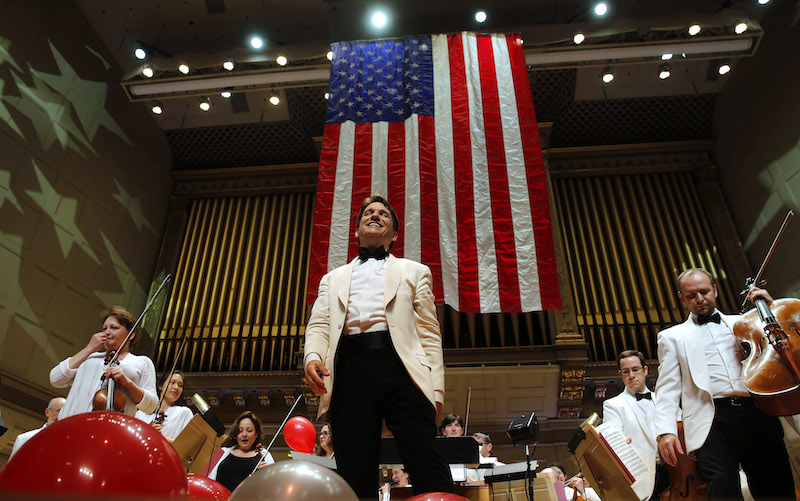
CS: In this sense, what are your thoughts about the “film concert” format that is exploding now in symphony concert halls all over the world? You conducted several Williams' titles such as Raiders of the Lost Ark, E.T. The Extra-Terrestrial and the world premiere of Jaws. Is this the most preferable way to perform film music in the concert hall? Or is it equally important to keep performing film pieces without any kind of visual support?
KL: The film in concert phenomenon is bringing a lot of new audience into the concert hall. I generally approve of it, although the craze is such that I think some of the films that are being presented that way really don't have scores that deserve that much attention. (John's scores are, of course, not among them!) I think it's a fascinating way to really be able to focus on the great music in a movie, even a movie you know very well and, after all, film music was meant to be heard with a film. I wouldn't want to stop performing music for its own sake, though...we already live in a society that is way too visual, and all of us need to learn to listen...really listen!
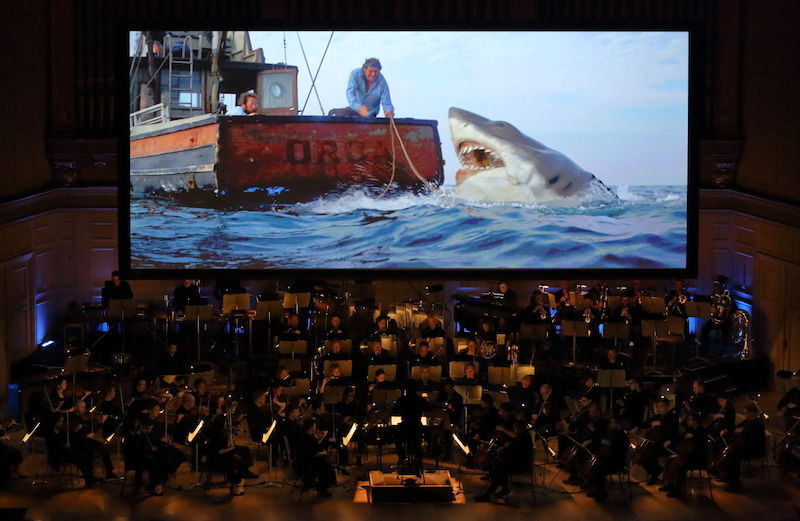
CS: To close our conversation, I'd love to point you out a piece by John Williams which I really hope it could be again performed and recorded by you and the Pops—it's called The Esplanade Overture and it was written in 1983 for the Boston Pops. Williams performed it several times with the Pops in those years, but nowadays it seems vanished from his programs. I hope you'll be able to record it for a Volume 2 of Lights, Camera, Music!
KL: I'll look into it! You know, this year we "rediscovered" Pops on the March, which John wrote for the Pops in 1981.
CS: Yes, it was thrilling to hear it performed live this past May in Boston. Thank you very much for your time, Keith. Keep the energy going!
KL: Thank you!
Special thanks to Amanda Severin and Taryn Lott (BSO Press Office) for the kind help and support. The pictures of Keith Lockhart are property of BSO, used under authorization.
